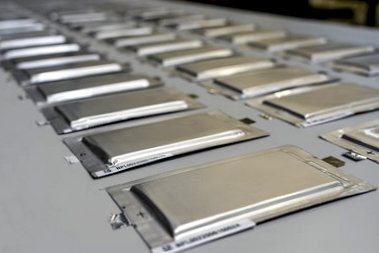Tech: Will Solid-State Batteries Be the Next Trend?
Lighter, More Powerful, Safer Batteries Are on their Way
Solid-state batteries could be the next big innovation in electric vehicle technology. Most EVs today use lithium-ion batteries with liquid or polymer.electrolytes. While these certainly get the job done, there is still plenty of room for improvement, particularly regarding charging. How will solid-state batteries transform electrification?
Higher Energy Capacity
One of the top benefits of solid-state batteries is their high energy density, allowing them to hold more power than lithium-ion batteries. A typical lithium-ion battery can hold about 250 watt-hours of electricity per kilogram. Solid-state batteries have a much higher energy density than current batteries, often two or three times greater.
Solid-state batteries can fit more power into much lighter assemblies. This reduces its weight, as well as that of the EV, while it increases range. It could cut down an EV’s battery weight from over 1,000 pounds to only a few hundred.
Faster EV Charging
Solid-state batteries are more stable than current lithium-ion versions and are less flammable. Their chemical properties allow them to charge faster than today’s EV batteries, addressing a key concern among consumers.
Surveys show 44% of consumers are nervous about the single-charge range of EVs and 36% are concerned about charger availability. These anxieties are among the main reasons some drivers remain skeptical about purchasing an EV.
Solid-state batteries could eliminate these concerns. They have a much higher chemical tolerance for rapid charging than current-technology batteries. A solid-state battery EV could get a full charge in 10 or 15 minutes without the safety concerns associated with today’s fast-charging technology.
Improved Sustainability
Recycling lithium-ion batteries with liquid or polymer electrolytes is possible, but their highly flammable, volatile nature makes the process dangerous.
After-life processing for batteries is a serious concern when considering the full range of vehicles that need electrified. For instance, large cars and heavy equipment need much more power than consumer EVs. Owners can take steps to care for industrial EV batteries and extend their lifespan. However, an effective recycling solution is needed to support sustainable electrification.
Solid-state batteries offer a solution. They start with a higher energy capacity and have more promising recycling potential than current batteries. One research project at Cambridge University developed a solid-state battery that is 100% recyclable. Cambridge’s method is low-emissions and results in recycled batteries that nearly match new ones in performance and capacity.
How Soon Will Solid-State Batteries Be Mainstream?
Solid-state batteries are an exciting development in EV technology. Unfortunately, it may be several more years before they become commercially available. This is largely because the technology needs significantly more R&D to be viable on the scale the EV market needs. Solid-state battery EVs likely won’t be available until the 2030s, although Toyota executives have told media that they could have a solid-state battery in a hybrid or plug-in hybrid by 2025..
This gives the EV market time to grow, though. Today’s early li-ion battery EVs are paving the way for more sustainable, faster charging vehicles in the next decade. Businesses and governments worldwide are developing larger charging grids and boosting EV awareness.
Toypta has hinted a solid-state battery could show up in a hybrid or plug-in hybrid by 2025
Researchers are even creating more sustainable systems for recycling li-ion batteries. Canada-based Li-Cycle reduces battery recycling emissions by removing smelting from the process. Programs like this will ensure today’s EVs are as sustainable as possible over the entire battery life cycle.
The Future of EV Battery Technology
While it may be a few years before solid-state battery EVs are popular on the road, they have a lot of potential for innovation. Compared to conventional lithium-ion batteries, they support higher energy capacity, faster charging and more sustainable recycling. These factors make an ideal next step in EV battery technology.
The post Tech: Will Solid-State Batteries Be the Next Trend? first appeared on Clean Fleet Report.






